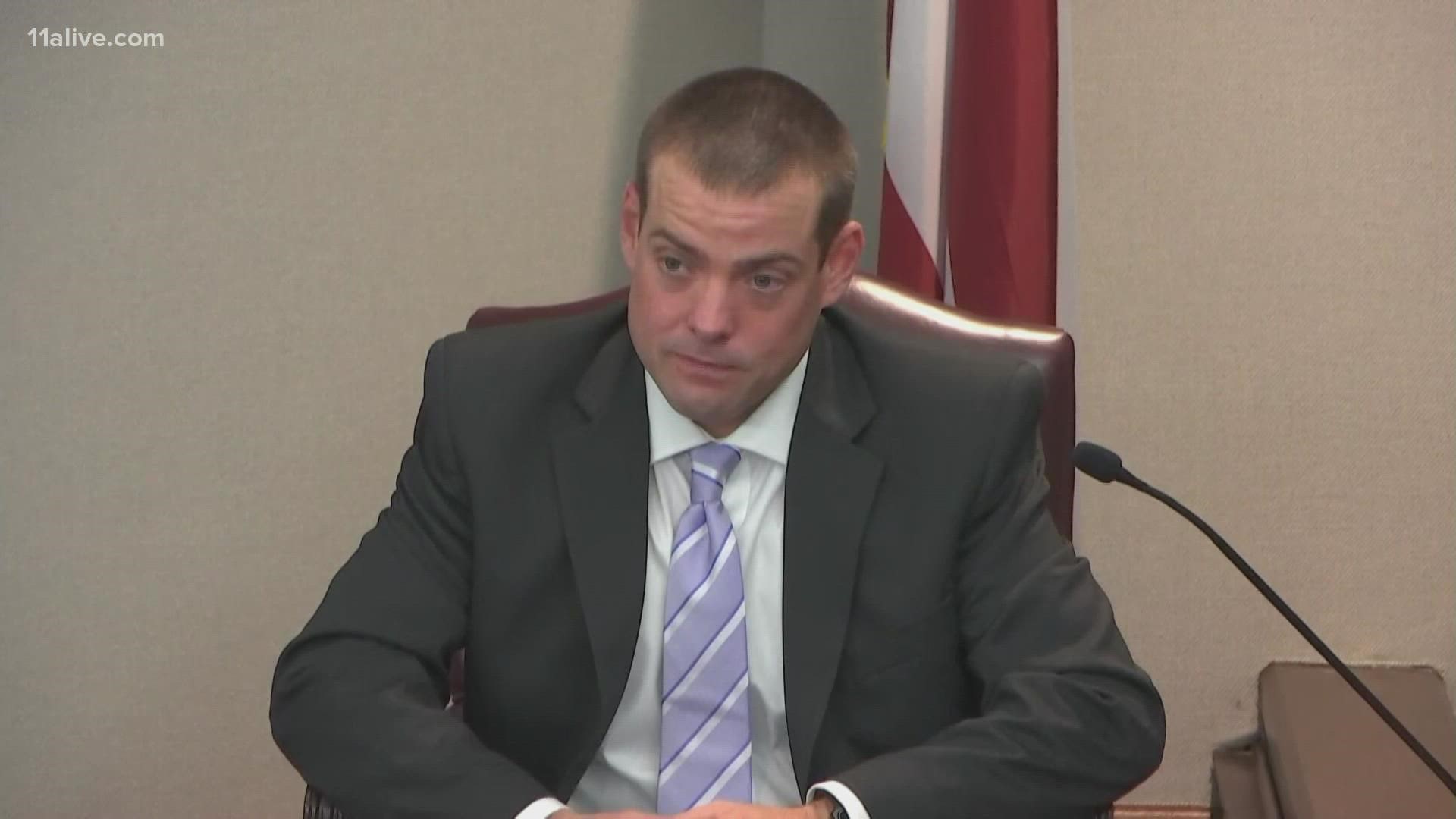GLYNN COUNTY, Ga. — Prosecutors Tuesday morning attempted again to cut at the citizen's arrest defense being presented in the murder trial for the Feb. 2020 killing of Ahmaud Arbery.
The responding officer who interviewed Greg McMichael testified first on the day, as defense attorneys tried to frame statements he made as showing his intent on the citizen's arrest matter.
McMichael, as well as his son Travis McMichael, are charged with initiating the chase of Arbery based on suspicions about neighborhood thefts - with Travis ultimately shooting him.
They have maintained they were attempting a citizen's arrest under a slavery-era Georgia law that was repealed after Arbery's killing, the heart of their defense.
It was the focus of questioning by prosecutor Lisa Dunikoski early Tuesday as Glynn County officer Jeff Brandeberry took the stand. The officer spoke to Greg McMichael after arriving on scene in the wake of the shooting.
The officer described McMichael as "amped up" and "pretty upset" when he began to interview him. He also described being interrupted multiple times by other law enforcement officers, the coroner, and bystanders on scene.
"If I could have got a shot at the guy, I'd have shot him myself cause he was that violent...," Brandeberry said McMichael told him, before one of the points at which they were interrupted.
Prosecutors also reviewed how McMichael told Brandeberry he had blood on his arm because he'd checked under Arbery's arm for a weapon as he was bleeding out and still breathing; and how McMichael said he grabbed his gun at the outset of the chase because, "I don't take chances."
Cutting to the citizen's arrest defense, Dunikoski asked Brandeberry if McMichael ever "used the word burglary, trespass - did he ever tell you he was attempting to make a citizen's arrest?"
"No ma'am," Brandeberry said.
"Did he use the word arrest? Did he use the word detain?"
"No ma'am."
"Did he tell you we were gonna detain this guy and wait for the police?"
"No ma'am."
McMichael's attorney countered with statements he made referencing how he "believed this guy [Arbery] had been breaking into houses" and "frequent trips to the neighborhood" where he'd get "caught on video cameras every third or fourth night breaking into places and nobody's been able to catch him."
"'No one has ever been able to catch him' - you understood in the context of that conversation that we're not just talking about police, but also neighbors?" Franklin Hogue, the defense attorney, asked.
14Hogue also attempted to emphasize the idea that McMichael provided a consistent narrative immediately after the killing.
"I did not notate that he had any change in his story," Brandeberry told Hogue, who had asked him if McMichael's account was consistent.
"And if he had, you would have noted that?"
"I should have, yes sir."
Prosecutors later challenged that narrative, noting that there was one house on the street - an unfinished home construction site where Arbery was seen on video entering multiple times in the weeks before his death, without taking or damaging anything - at the focus of suspected thefts.
They also noted McMichael had referred in other statements to "a house" and Arbery being seen on video going into the house "2-3 times."
"Did he ever tell you which houses, did he tell you where he got this information from, did he tell you victims of these break-ins?" Dunikoski asked Brandeberry.
"One guy was a banker as far as we got into it," he responded.
That was the owner of the under-construction property.

